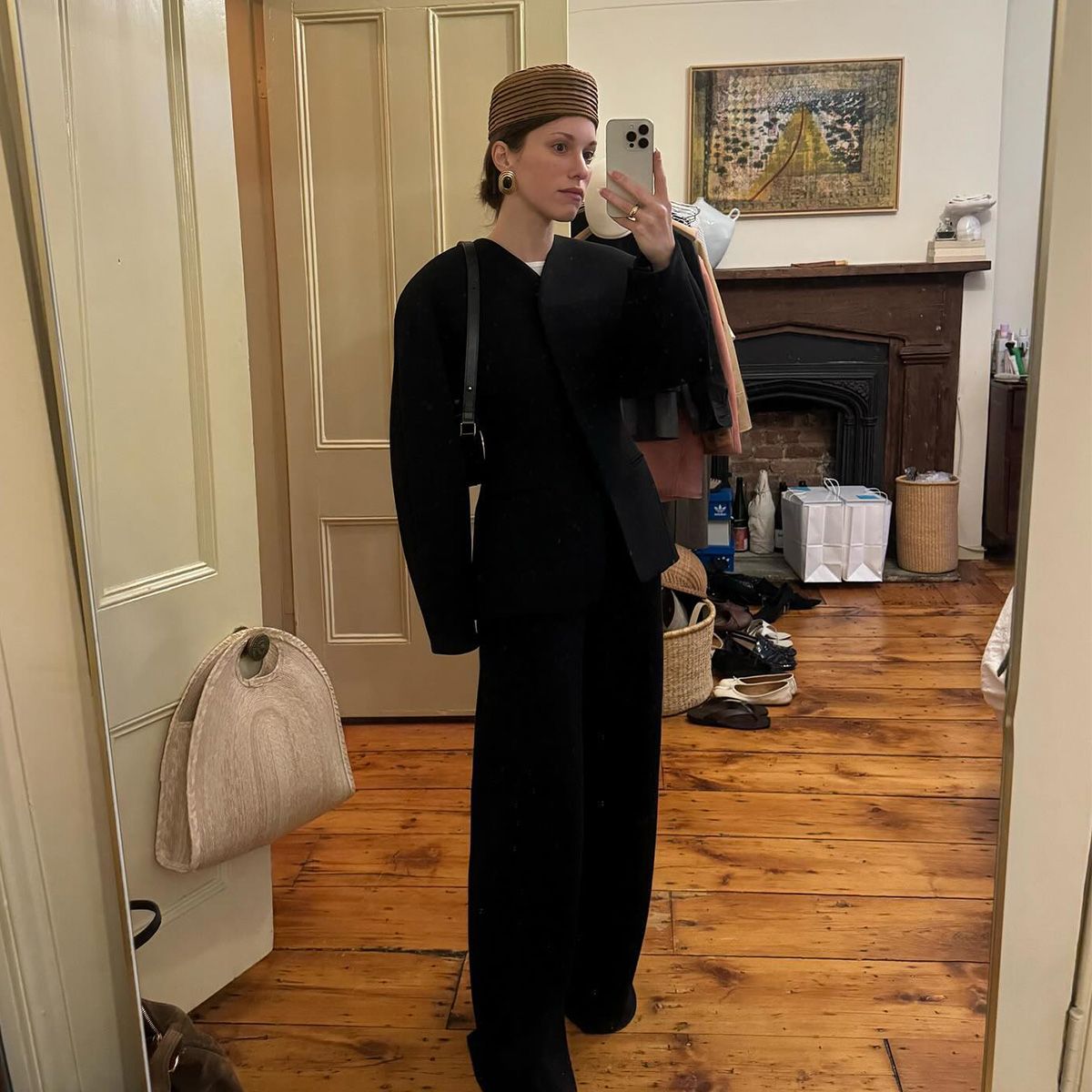Although the prospect seems scarcely imaginable now, there was a time, not very long ago, when American Jews were free to have no particular thoughts or feelings about Israel. This was true not only of run-of-the-mill Jews but of intellectuals and writers as well. And it wasn’t merely that assimilation—an act at once idealistic, pragmatic, and mortifying—was more pressing to a Philip Roth or a Saul Bellow than one’s relationship, one way or another, to the nascent Jewish state. It’s that Israel, and Zionism, didn’t seem like relevant objects of concern. This is no longer a tenable position. Joshua Cohen’s novel “The Netanyahus: An Account of a Minor and Ultimately Even Negligible Episode in the History of a Very Famous Family,” which won the Pulitzer Prize for fiction in 2022, is a revisionist history that needed little more than a year to lie in wait for its time. The book is premised on a counterfactual: What if the American Jewish intellectuals of the interwar period—that is, between the end of the Second World War and the Six-Day War—had been forced to wrestle with Zionism? And what if their Zionist challenger hadn’t represented the ostensibly liberal, humanist, kibbutznik wing of the movement that was then in ascendance, but the expansionist, chauvinistic, Messianic contingent then in retreat? These aren’t idle questions.
Cohen’s novel is narrated from the present but takes place in 1959, to coincide with the publication of Roth’s “Goodbye, Columbus,” a book with only a single glance over its shoulder at Israel—a reference to the fact that the American Jew, when he thought about Israel at all, then considered it a place that didn’t have enough trees. Very loosely based on a personal anecdote relayed to Cohen (who, I should probably note, is a friend of mine) by the late Harold Bloom, “The Netanyahus” tells the story of an encounter between Ruben Blum, a first-generation scholar of taxation—“I am a Jewish historian, but I am not an historian of the Jews,” he warns, defensively—and Benzion Netanyahu. At the time, Benzion was a largely unknown and quasi-mystical interpreter of the Iberian Inquisition—which, for him, represented the perennial efflorescence of antisemitism as a racialized (and hence ineradicable) phenomenon. Much later, he became known as the (spiritual and, incidentally, actual) father of Bibi, the current Israeli Prime Minister, and as, in Bibi’s retelling, the patriarch of American-Israeli relations. Blum, as the lone Jew on a rural campus that stands in for Cornell, is asked by his Waspy, alcoholic department head to host Benzion for a job talk. Benzion, who believes that the Jewish people can only be safeguarded in perpetuity by Jewish state power, has become persona non grata in Israel in part for the extremity of his views—the territorialist belief, for example, that Jewish sovereignty ought to extend over “Greater Israel.” He has been invited to interview for a joint appointment in the college’s history department and its seminary. The rationale is budgetary, but Benzion, despite his secularism, exploits the irony of the occasion to try out the kind of end-times ethnonationalism that will soon drive Religious Zionism and the settler movement.
Blum, for his part, has done his best to leave seminarian attachments behind. His Bronx childhood straddled a yawning divide between his religious education—rabbis droning on about the Jew’s existence outside time, in an eternal recurrence of exile, persecution, and dispossession—and its American counterpart: destiny made manifest in ceaseless forward motion. He ultimately chooses to study history of not the Judeo-pessimistic but the Whiggish departmental variety. Benzion’s arrival heralds, for Blum, the return of the repressed. The sly patricidal joke of the book is that Roth was only half right to identify Jewish American repression as sexual. Although the novel culminates in a comic episode of priapism, the libidinal emancipation of the Netanyahu family owes less to Sigmund Freud than it does to Theodor Herzl. What has been repressed, for Blum, isn’t sex but Israel—both the actual state and its reconstituted form of muscular Jewish identity.
In the beginning of “The Netanyahus,” both Blum and Benzion feel as though they have at last entered history. For Blum, this has meant a self-conscious climb into American middle-class hide-a-bed comfort. (He has compromised with the rabbis of his youth by specializing in the subdiscipline of economic history, where Jews might not have been agents but were at least reliable subcontractors.) Benzion, however, is inflamed by the idea that it was only with the “ingathering of exiles to Zion” that Jews emerged as a proper people on the world stage. Benzion considers Blum a delusional fool for having bought the kind of “integration” America is selling him: extermination on the installment plan. (Blum’s daughter effectively risks her life for a nose job.) Blum, for his part, believes that what Benzion professes is not history but thinly veiled theology. He is nonetheless drawn in, to his surprise and discomfort, by Benzion’s provocation that American Jews have ransomed themselves for the fantasy of belonging.
What makes their overlap a “minor and ultimately negligible episode” for Benzion, if not for Blum, is that their encounter is one of ships in the night. The two figures—the uneasily Americanized Jew and the fervently ideological Zionist—glance off each other, bound in orthogonal directions. As Blum reflects:
We never learn much about Blum the contemporary narrator, the Blum who can recall this supposedly “negligible” episode in such agonizing detail, although we can infer from his stray comments about the contemporary campus atmosphere of “grievance” that he entertains some culturally reactionary sympathies. Part of this might be his sense that there is no place for Jews in the new landscape of competitive victimhood—that identity politics has become a militarized option for every minority aside from his own. And one can safely assume that Israel and Zionism are no longer things that Blum feels the desire or latitude to ignore. It’s clear, from his analysis of the “death-rattle gasp” of difference between his own attitude and Benzion’s, that the latter’s views are no longer as alien to him as they were in 1959. The twinned transformations might not have been quite so divergent after all. Like escaped prisoners in a screwball buddy comedy, they’re about to realize that they’re shackled together. Understanding the mechanisms—inevitable and otherwise—that effectuated that shift is an exercise Cohen leaves to the reader.
The problem, as Cohen is aware, is that most American Jews have forgotten, or perhaps never knew, how estranged a figure like Blum might have felt at mid-century from someone like Benzion, and thus have no real idea how we came to take for granted the troubled kinship between American Jews and Israel. How did American non-Zionist Jews become liberal Zionists or even right-wing Zionists? (And how, in turn, did their grandchildren become anti-Zionists?) When Cohen’s book first appeared, it was read as a comic allegory about identity politics. This is true, although it was at the same time a tragic allegory about identity politics. The present moment, when the boundary between identity politics and global realpolitik has become blurry, clarifies the novel’s stakes. Two new books—Shaul Magid’s “The Necessity of Exile: Essays from a Distance,” completed just before October 7th, and Noah Feldman’s “To Be a Jew Today: A New Guide to God, Israel, and the Jewish People,” written late enough to be updated—provide judicious, sober genealogies of the political and spiritual conflicts that have afflicted Jewish communities in light of their relationships to Israel. Taken together, they invite a more capacious understanding of Jewish lives and Jewish futures in the diaspora.
Magid, a professor of Jewish Studies at Dartmouth and an ordained rabbi with a pulpit on Fire Island, was raised in a New York suburb by secular Socialist parents with ties to the Workmen’s Circle, then a mutual-aid society devoted to the cultivation of Yiddish cultural autonomy. In 1978, as a hippie in his early twenties, he moved to Israel in an aimless search for spiritual communion. He had, by his own admission, no interest in Zionism or even Judaism, but he sought by instinct a sense of cosmic affinity in the sunlit uplands of the ancients. Over the years, he took up with like-minded counterculturalists in a Jerusalem yeshiva, fell in and out of various Haredi communities, and spent time among the early settlers. As he wandered in the desert, he was exposed to crosscurrents of Messianism. On the one hand, he was introduced to the dwindling strongholds of religious anti-Zionism, whose proponents maintained a “spiritual posture” against the establishment of a secular Jewish nation, which violated two thousand years of rabbinical teaching about exile; he eventually came to read Joel Teitelbaum, the Satmar rebbe and a lifelong opponent of the Jewish state, a homecoming that was supposed to occur only with the arrival of the Messiah. On the other hand, Magid was attracted to the then marginal rise of Religious Zionism, which married Romantic ideals about nation and land to a divine quest for the deliverance of the Jewish people. The Religious Zionists, who looked upon the settlement of their God-given enclave as a necessary precursor to the fulfillment of the covenant, “truly believed they were the vanguard, riding the wave of messianic time.” He writes, “To me, it appeared to be a Jewish spiritual path that had left Europe behind. Its center was not the nostalgia of the shtetl but the mysterious resonance of a more ancient landscape. I later came to see that while the former was quaint and outdated, the latter was powerful yet dangerous.”
He catches an early glimpse of disturbance on the horizon at a Shabbat service in Atzmona, a settlement in Gaza. He writes, “Gazing out at the village of Khan Yunis, seeing Palestinians riding their donkeys and carts home from the market, and hearing the call to prayer from the many mosques that dotted the landscape, I realized that the people in Atzmona did not really see the Palestinians as coinhabitants; they were not part of their project. The settlers viewed their neighbors as part of the background, like the flora and fauna.” Something, he says, “broke inside me in that beautiful spot by the sea.” At the time, as Religious Zionism was beginning to coalesce as a political movement, Magid observes that Palestinians were still not exactly seen as enemies; they were more like natural features of an Oriental panorama, obstructions to the Zionist project to be rearranged or removed by God’s will. By the time Magid served in the I.D.F., though, during the first intifada, the hostility had become explicit. The tensions between his apolitical spiritual yearning and the reality of the political project on the ground became too much for him to bear. Some of his fellow-travellers on the hippie path began to adopt the increasingly common position of “right on Israel, left on everything else,” but he found himself ultimately unable to reconcile “the counterculture’s commitment to the freedom, justice, civil rights, nonviolence, and equality in the context of Israel’s continued occupation that includes systematic discrimination against the Palestinian population.”
The book is a record of his painful surrendering of Zionism, an ideological project that he compares to Manifest Destiny. He advocates instead for what he gingerly calls “counter-Zionism,” a “new collective ideology that, if enacted, could serve Israel as a more liberal and democratic place for the next phase of its existence.” Zionism in its statist form was, in other words, an historically spent force, a nineteenth-century solution to the problem of antisemitism; it is past time, he thinks, to seek a new solution that allows for the self-determination of both Israelis and Palestinians. The state’s character, he writes, “would not be structured on the notion that this land ‘belongs’ to anyone, it would be a true democracy.”
The fact that these are not new ideas is exactly the point. Magid’s project—over the wide-ranging, moving, and learned essays that constitute the collection—is to do what Jews have always done when they want to mute or subdue the radicalism of a disruptive proposal: he locates the source of his authority in traditional antecedents. (The oldest rhetorical trick in the Jewish book is to recast one’s defiance of one’s parents as loyalty to one’s grandparents.) The tradition he delivers out of collective amnesia is the long, complicated, and often elided custom of Jewish alternatives to Zionism as a national project. Between the eighteen-eighties and the nineteen-forties, statist Zionism was a minority aspiration. This was true at virtually every point along the spectrum of Jewish observance. For religious Jews, the establishment of a state prior to the arrival of the Messiah was an apostasy. The statist project was avowedly secular—the endgame was the construction of a new Hebrew culture to supplant Judaism as a religion—and observant communities generally wanted no part of it. For many Socialist and communist Jews, nationalism of any stripe was a monstrous and decrepit ideology. They predicted, especially in the wake of the First World War, that it would inspire exactly the kind of exclusionist zealotry that had long been the bane of European Jewish existence. A Jewish nation-state would invariably squander the righteousness the Jewish people had cultivated on the civilizational margins: as it is written in scripture, “When a stranger resides with you in your land, you shall not wrong him. The stranger who resides with you shall be to you as one of your citizens; you shall love him as yourself, for you were strangers in the land of Egypt.” For American Jews, the prospect of nationhood elsewhere undermined their faith in Jewish assimilation. They feared that it would summon the spectre of dual loyalty. These various cohorts didn’t necessarily agree with one another about anything else—they were, after all, Jews—but they shared a deep suspicion of Zionism’s commitment to shlilat ha’golah, or the negation of exile. In other words, the creation of a Jewish state would necessarily debilitate and collapse all other forms of Jewish identity and Jewish observance in the gravitational vortex of nationhood. The Zionists did not mince words about this aspiration; they reached for every standard antisemitic trope—that Jews were sickly, flawed, rootless, desiccated—to demean the forms of Jewish life in the diaspora.







